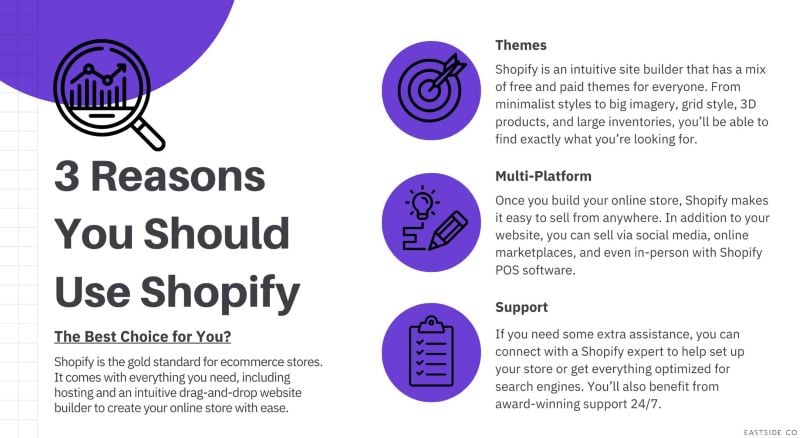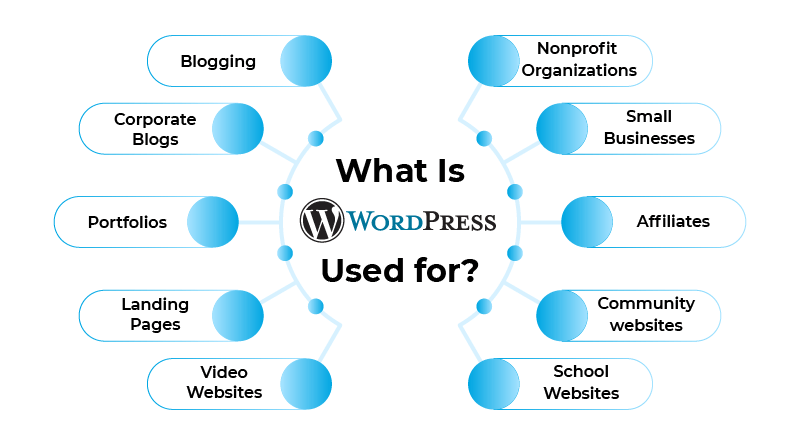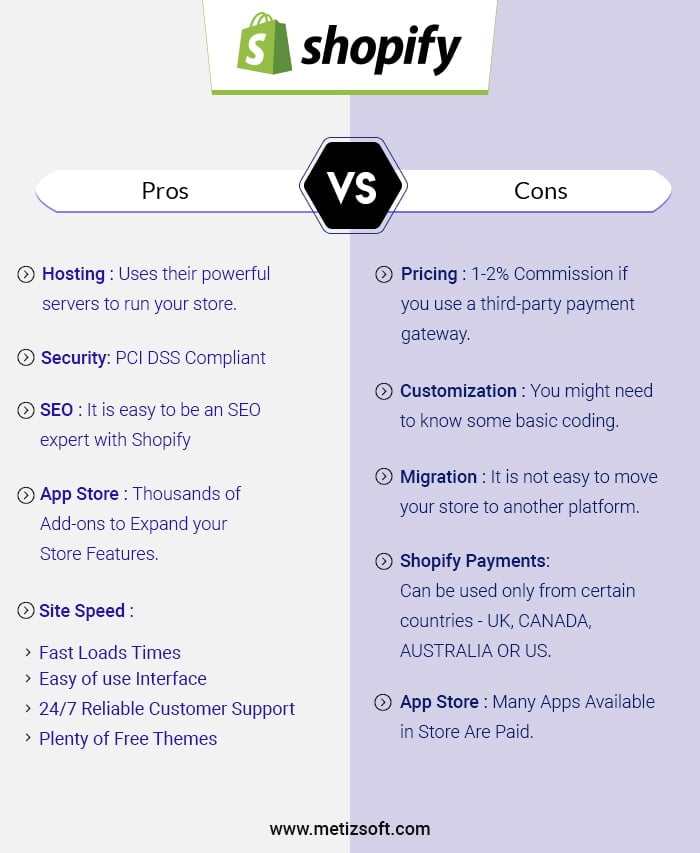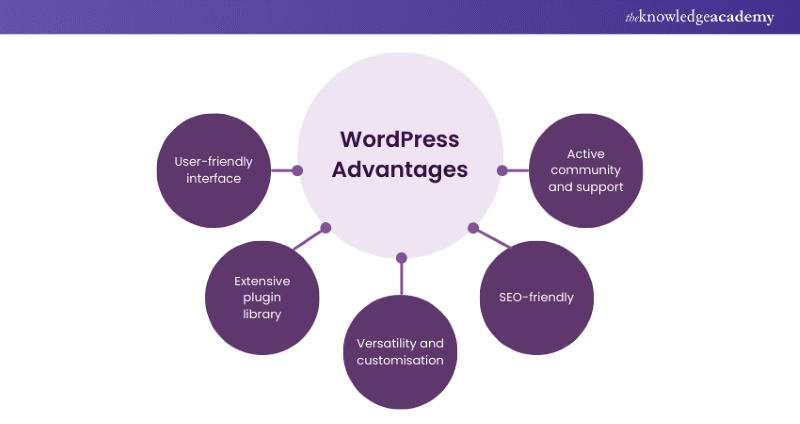
WordPress vs Shopify: The Ultimate 2025 Comparison Guide
Did you know that nearly 70% of online purchases now happen on mobile? Or that more than 875 million people have bought from a Shopify-powered store while WordPress powers more than 40% of all websites?
Choosing between Shopify and WordPress for your eCommerce store in 2025 is crucial—the right choice can skyrocket your sales and SEO performance.
In this guide, I’ll cut through the noise and give you a data-driven, expert-backed comparison of Shopify vs. WordPress in 2025 so you can confidently pick the best platform for your business goals.
TL;DR:
- Shopify is best for beginners wanting an all-in-one, easy-to-use store.
- WordPress (WooCommerce) is best for flexibility, advanced SEO, and deep customization.
Shopify vs. WordPress: Quick Comparison Table
| Feature | Shopify | WordPress (WooCommerce) |
|---|---|---|
| Ease of Use | ⭐⭐⭐⭐⭐ (Beginner-friendly, no coding) | ⭐⭐ (Requires setup, plugins, hosting) |
| eCommerce Features | ⭐⭐⭐⭐⭐ (All-in-one) | ⭐⭐⭐⭐ (More flexible but needs plugins) |
| Customization | ⭐⭐⭐ (Limited without coding) | ⭐⭐⭐⭐⭐ (Endless, if you know how) |
| SEO | ⭐⭐⭐ (Basic, requires apps for advanced SEO) | ⭐⭐⭐⭐⭐ (Full SEO control, best for content-driven stores) |
| Pricing | Monthly plans from $39 | Free to start, but hosting & plugins cost extra |
| Support | 24/7 live chat & phone support | Community-based, premium support costs extra |
| Security | Built-in SSL, PCI compliance | You manage hosting & security yourself |
| Best For | New businesses, dropshipping, ease of use | Scalability, SEO, content-rich stores |
What is Shopify?
Shopify is a fully hosted eCommerce platform. Many people select Shopify’s Basic plan or their premium version for their online selling because Shopify offers built-in tools to sell products online. Blog posts, SEO features, social media, and general marketing can take up a lot of real estate for businesses. By having online stores hosted on Shopify, both setup experience and business ease-of-use can skyrocket.
While Shopify may have once required a glaring and obvious “.shopify” tag at the end of its URL, the platform has continued to improve its approach to online selling, including its approach to transaction fees, built in SEO features, and even technical expertise available to users. From gift cards to built-in ecommerce features, Shopify is often considered a frontline platform for high quality options for eCommerce.
Further Reading: How Does Shopify Work? The Complete Beginner’s Guide
Key Shopify Features
Shopify is often cited as a favorite for ecommerce. The platform has been around for years, and has continually adapted to work for a wide range of stores and businesses. This makes it a valuable tool, with plenty of basic and advanced features to select from to further improve customer experience. Some of the features I love to see on Shopify include:
- AI-powered product descriptions (Shopify Magic): The product description field can be difficult to get right, and Shopify offers customization options for product descriptions using AI.
- Shopify Markets (Advanced multi-currency & localization): Shopify Markets is another way to market your digital products by providing multi-currency purchase options for international selling eCommerce features and localization for online store builders.
- One-click integration with TikTok Shop & Amazon: Integration is essential for managing your store, which can be difficult with additional plugins. Shopify erases that need with one-click integration capabilities, which can be an essential business function.
- Shopify POS (For selling online & in physical locations): May eCommerce stores piggyback off of brick-and-mortar locations, and Shopify has the ability to manage both from one platform to support physical and online selling.
Who Should Use Shopify?

Aside from the standards–pricing plans, contracts, and features–there are some important components to consider before choosing your eCommerce platform. To that end, I have determined the online store builders who will most likely benefit from using a Shopify platform. These builders include:
- Entrepreneurs with no coding experience: Shopify offers a selection of themes, to provide a lovely site of basic layouts without having coding experience.
- Brands that want an all-in-one solution: Shopify’s online platform can help your online business thrive, without bringing in a host of third-party tools due to its existing features such as Shopify Email, a built-in email marketing tool.
- Businesses that prefer monthly pricing over setup complexity: Plenty of eCommerce tools favor complexity over simple monthly pricing, but Shopify delivers a basic pricing model that scales up according to user needs and additional features.
Further Reading: Top 15 Shopify Website Examples to Inspire Your Online Store
What is WordPress?
WordPress is a content management system (CMS) used to power over 40% of the internet. WordPress’ custom domains can be paired with WooCommerce to fuse the CMS with a powerful eCommerce platform. The marriage of these two tools can help online businesses flourish even without advanced technical skills.
WordPress is a multifaceted platform that can be used to create a basic blog, a complex website with plenty of extra features, and an eCommerce store without a slew of additional costs. It is a traditional website builder, however, which means that it does not offer the same Shopify Plus tools, such as a built-in email marketing tool.
Key WordPress/WooCommerce Features:
Like Shopify, there are some important components to consider when looking at the features of prospective eCommerce platforms, including the presence (or lack) of advanced features. Like many of its competitors, WordPress is a site that can be navigated without a host of technical expertise, or a series of advanced third-party tools. Instead, WordPress/WooCommerce offer:
- AI-powered SEO tools like RankMath & Yoast SEO: SEO is essential for a wide range of business and brand needs, but is similarly valuable to promote your online store.
- WooCommerce now supports one-click headless commerce: One-click headless commerce offers a way to pay with a credit card or other payment type without additional costs or unnecessary steps.
- New Gutenberg updates allow advanced drag-and-drop editing. This is particularly useful for people looking for the ability to make updates and changes without a great deal of technical expertise.
Further Reading: 15 Powerful WordPress Ecommerce Plugins
Who Should Use WordPress?

WordPress is used for a wide range of business needs, but may cater to specific niches more effectively than others. Although WordPress sites are among the more popular options for people who are just starting out and industry mavens, alike, there are specific groups who may enjoy the features included in a WordPress site more than others. Some of these groups include:
- Content-heavy businesses (blogging + selling): Content serves as the backbone for WordPress site’s custom domains, and an online business with a great deal of content will likely benefit from the content-focused nature of WordPress.
- SEO-driven brands that need full customization: Because WordPress is frequently used by online businesses, it has the ability to deliver full customization and is one of the greatest platforms for bespoke websites.
- Advanced users who want total control over site design: Considered among the popular options for its ease of use, WordPress can also be great for people who want complete control over the design of their site.
Further Reading: 15 Powerful WordPress Ecommerce Themes to Build Your Next Online Store With
Shopify vs. WordPress for SEO
I have detailed the values of WordPress and Shopify according to their specific offerings and features, but there is one important consideration that many people forget to include in their search: search engine optimization. SEO is an important part of marketing for your eCommerce shop, so opting for a shop with the greatest potential for search engine optimization can mean the difference between your online business thriving in search and struggling. I have put together a direct comparison of Shopify vs Wordpress to identify the custom content types available for each, and the most effective way to leverage both e-commerce and going that extra mile of optimal SEO performance.
Shopify SEO Pros

Although a discussion of Shopify may focus on transaction fees and other factors involving user experience, there are some definite positives to the SEO tools provided with Shopify sites.
- Clean, fast-loading themes (great for mobile-first indexing): Fast-loading themes are essential for mobile-first indexing and is an essential feature of eCommerce tools looking to perform well in SEO.
- SEO apps (Yoast, Plug In SEO) to improve rankings: A direct comparison of apps yields similar SEO apps, which are essential tools for any online business, regardless of extra features focusing elsewhere.
- Structured data (Schema) built-in for better Google visibility: Schema essentially tells Google where your site is and what it is best used for, so an Ecommerce website builder or platform must offer something in the way of schema.
WordPress SEO Pros

WordPress’ nature as a site first, with eCommerce functionality can set it apart from its peers, in terms of drag-and-drop editor options, content management options, inbound marketing capability, and ease of use for non-technical users. How does an evaluation of Shopify vs WordPress come back, however, regarding SEO? WordPress SEO functionality is often seen as superlative, because it has many in-built features to support SEO simply because it originated as a blogging and website hosting platform. Nonetheless, WordPress SEO pros include:
- 100% customizable SEO settings (meta tags, sitemaps, etc.): WordPress may offer basic layouts as part of their base offerings, but the platform also offers 100% customizable SEO settings to give users a greater degree of control over SEO settings and practices when compared to the limited range of options with other platforms.
- More advanced plugins for on-page optimization: SEO tools can be more advanced through the use of premium plugins, to help create on-page optimization and increase your pages’ likelihood of being seen.
- Faster indexing & better control over Core Web Vitals: Although not typically considered a type of eCommerce feature, WordPress provides faster indexing as part of its in-built features, and better control over the core set of vitals imperative for growth and visibility.
SEO Winner? → WordPress Who emerges as the victor in the Shopify vs WordPress ring? Ultimately, WordPress is a better option as an eCommerce website builder for superlative SEO performance, as it offers a wide range of SEO tools in addition to its e-commerce functionality. WordPress and Shopify are two of the most popular options for a wide range of online stores, but as an open-source platform, WordPress frequently edges out Shopify for SEO success and subsequently, the best long-term organic traffic growth.
Further Reading: Is WordPress or Shopify Better for SEO? 7 Important Things to Consider
Shopify vs. WordPress Pricing
| Cost Factor | Shopify | WordPress (WooCommerce) |
|---|---|---|
| Monthly Plan | $39 – $399+ | Free, but hosting costs extra |
| Domain | Included | $10 – $20/year |
| Hosting | Included | $5 – $30/month |
| eCommerce Plugin | Included | WooCommerce (Free, but premium plugins cost extra) |
| Transaction Fees | 2.9% + 30¢ (lower with Shopify Payments) | Varies (depends on payment gateway) |
Key Takeaway:
- Shopify is best for predictable monthly costs. If it is important to your business to have a predictable monthly bill, Shopify may be best.
- WordPress is best for lower long-term costs if managed well. If you manage your available payment gateways and manage your site well overall, WordPress may be the better option for e-commerce functionality.
Final Verdict: Which is Better in 2025?
Finding the right platform for your brand or business is not quite as simple as determining a definitive winner in the Shopify vs Wordpress match up. Instead, people in search of effective eCommerce tools need to take a closer look at additional features offered, evaluate their own technical skills, and even look into the availability of a self-hosted version and overall eCommerce functionality. From discount codes availability to having an adequate theme directory, brands and companies have a lot to consider when selecting a store platform.
Content, inventory management, the ability to provide multilingual plugins and international selling–these are all considerations to take into account when evaluating a range of options for your e-commerce platform and any plugin providers who may or may not be compatible.
Ultimately, my recommendation is this:
- Choose Shopify if you want an easy, all-in-one eCommerce solution. Shopify is set up to easily navigate creating a website with a range of themes and settings for product variants.
- Choose WordPress if you need maximum customization, advanced SEO, and scalability. WordPress offers far more of a customized option, with enormous customization potential and the ability to use a traditional website builder or a ready-made WordPress-powered website with easy blogging functionality.
Further Reading: WordPress vs Shopify for Your Ecommerce Store – and the Winner Is?
Conclusion
Both Shopify and WordPress have powerful advantages in 2025. The right choice depends on your goals:
- Want a hassle-free store that’s live in minutes? → Try Shopify Free for 3 Days
- Want total control over SEO & design? → Start with WordPress + WooCommerce
Both platforms offer a premium version with far more features, as well as a cheapest plan to get inexperienced users started without a huge amount of overhead. Both offer a range of templates and visual editors, with the option for different language versions. Where the two diverge, primarily, is their commitment to appeasing Google Analytics and delivering on strong SEO scores.
No matter which platform and associated themes and tools you decide on, focus on developing a world-class product that will be successful regardless of which option you choose!
2 Comments
Comments are closed.









THANKS FOR YOUR VALUABLE INFORMATION
Thanks for stopping by!